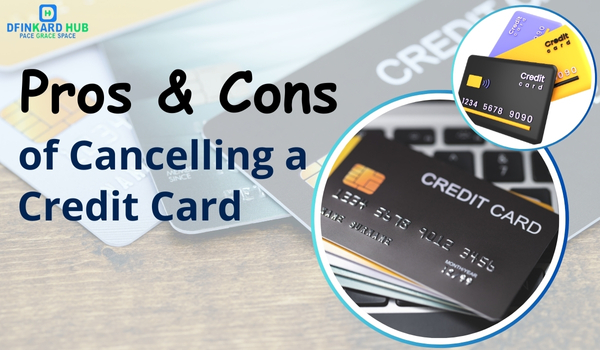Pros and Cons of Cancelling a Credit Card
Introduction
Most of the time, cancelling a credit card seems like an easy decision, but there are pros and cons attached to it that have to be weighed carefully. Cancelling a credit card may massively hit your wallet and credit score. In this blog post, we’ll explore the reasons people may want to close their accounts as well as the potential pitfalls of doing so. If you’re thinking about cancelling a credit card, know what that could mean for your financial future.
Pros
1. Avoiding Temptation to Overspend: The most basic and apparent benefit in cancelling a credit card would be to avoid the temptation to overspend. When you no longer have easy access to credit, for sure, you wouldn’t be tempted to make impulse purchases, which can be made with money intended for other purchases to be done within the month. This would allow for making the budget and ease off unnecessary debt.
2. Risk Minimization for Fraud: By cancelling a credit card, chances of a card being fraudulently used are reduced. With one less card in your possession, there’s a lesser probability of its loss or theft, and hence chances of any fraudulent transaction go down.
3. Ease of managing finances: Juggling through several credit cards sounds very laborious and complicated. In a nutshell, if you cancel your card, it makes your life easy since you do not have to deal with so many accounts. It becomes easier to track your hard-earned cash and make sure all bills are paid on time.
4. Avoid Paying Annual Fees: Many reward, travel, and other credit cards come with annual fees. If you do not use your credit card frequently, then cancelling one will save you some money on those fees, thus making your financial life a little less expensive.
Cons
1. Impacts on Credit Scores: One of the most significant cons to closing a credit card is that your credit score could be affected. One of the key ways this occurs is that closing increases credit utilization, especially if you close a card that has no balance on it. Credit utilization is defined as the ratio of credit that has been used in relation to available credit. Additionally, this could hurt the length of your credit history, especially if the card you cancel was one you’ve had for a while.
2. Loss of Rewards and Benefits: Whether your card has rewards like cash back or points plus, travel miles, or other credit card perks, cancelling your card means forfeiting any remaining rewards. Weigh the net value of the rewards and other benefits against any costs you’re incurring with the card before deciding on whether to cancel it.
3. Decrease Your Available Credit: Cancelling a credit card means your overall credit allowance decreases, which can pose problems in future situations when you will need credit access. A higher available total generally works more favourably in emergencies and for some larger payments.
4. Difficulty in Reapplying: So, there’s a card that you cancel, and probably other times when you wish you needed it back; that can lead to relatively low convenience in reapplying. You may not get the same terms or benefits in your new product, and it can also be quite long, perhaps even harmful to your credit score.
Conclusion:
Such a decision will, therefore, have to be based on the pros vis-a-vis the possible cons associated with cancelling a credit card. One needs to assess his/her current financial status in terms of expenditure habits and his/her long-term credit aims before reaching any kind of decision. You can, however, find professional advice from a financial adviser.
